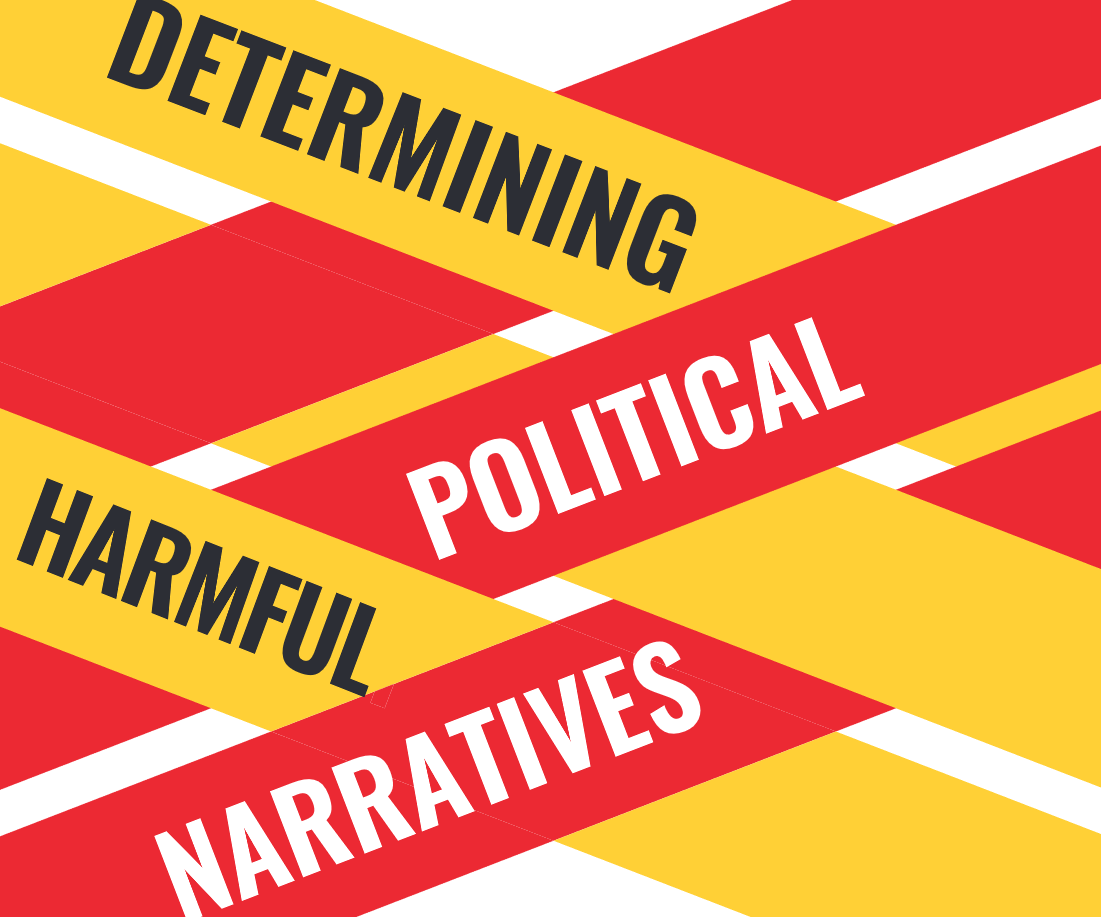
ICS Publishes First Report on Determining Harmful Narratives in Public Political Communication in North Macedonia
The Institute of Communication Studies (ICS) has published the first report within the research “Determining Political Harmful Narratives” (HARM-TIVE). This research aims to provide comprehensive empirical material on how harmful political narratives are created and disseminated in North Macedonia. Therefore, the study analyzes the extent and prevalence of harmful narratives in public political communication among political parties and politicians with the public in the country, as well as the way these narratives are reported in the media.
More specifically, the research covers two segments: (1) Monitoring and analysis of the narratives created and shared by political actors in Macedonia through their web pages and Facebook profiles;(2) Monitoring and analysis of media reporting on political actors and the narratives they create and share.
The results reveal whether and how political actors in Macedonia create harmful narratives and what role the media plays in reporting these narratives, namely whether they apply professional and ethical journalistic values and standards in doing so.
Political actors in Macedonia and the media are complicit in creating a reality that is populated with harmful narratives. At the same time, the former seem oblivious to the set norms and standards for public communication (transparency; ethics; professionalism, and impartiality in communication; communication based on evidence; nurturing the culture of speech and refraining from discriminatory speech), and the latter the ethical codes and the basic journalistic rules for informing the public. It is noteworthy that the main source of harmful narratives is usually a small number of political parties, as well as that part of the media with one-sided and uncritical reporting helps these toxic narratives gain echo in the media environment.
The monitoring and analysis of the party’s public communication shows that in the public discourse represented on the websites and social media posts of political actors in Macedonia, rhetoric prevails in which allegations of corruption, non-transparency/non-accountability, unprofessionalism, abuse of office are presented without any attempt to substantiate those claims. Unverified findings are used as a basis for accusing political opponents, of producing harmful narratives of populism, undermining trust in institutions, biased data selection that leads to incorrect conclusions, and inciting socio-political divisions among the public.
In the reporting of part of the analyzed media, the lack of a professional barrier and verification of statements that promote accusations without evidence, populism, intolerance, spreading disinformation, and even hatred towards certain groups, only encourages political actors who see the media as a free platform to promote their harmful narratives. The one-sided reporting of the media, that is, the representation of only one side in the news item, is a serious problem that points to unprofessional reporting and an unbalanced and biased attitude.
The research is longitudinal and throughout 2023 and 2024, a team from ICS, in collaboration with researchers and experts in the field of communications and media, as well as media professionals in monitoring and control, is conducting it in several phases. For the research, monitoring of the websites and Facebook pages of the 10 political parties and their leaders whose parties have at least two MPs in the 2020-2024 parliamentary composition was carried out, as well as analysis and monitoring of 11 online media and 9 television stations. The first report covers September and October 2023.
This research is carried out within the project “Fact-Based Journalism for Raising Awareness and Countering Disinformation in the Media Space in North Macedonia: Use Facts” supported by the British Embassy in Skopje.
You can read the first report at the following links.
Contact:

